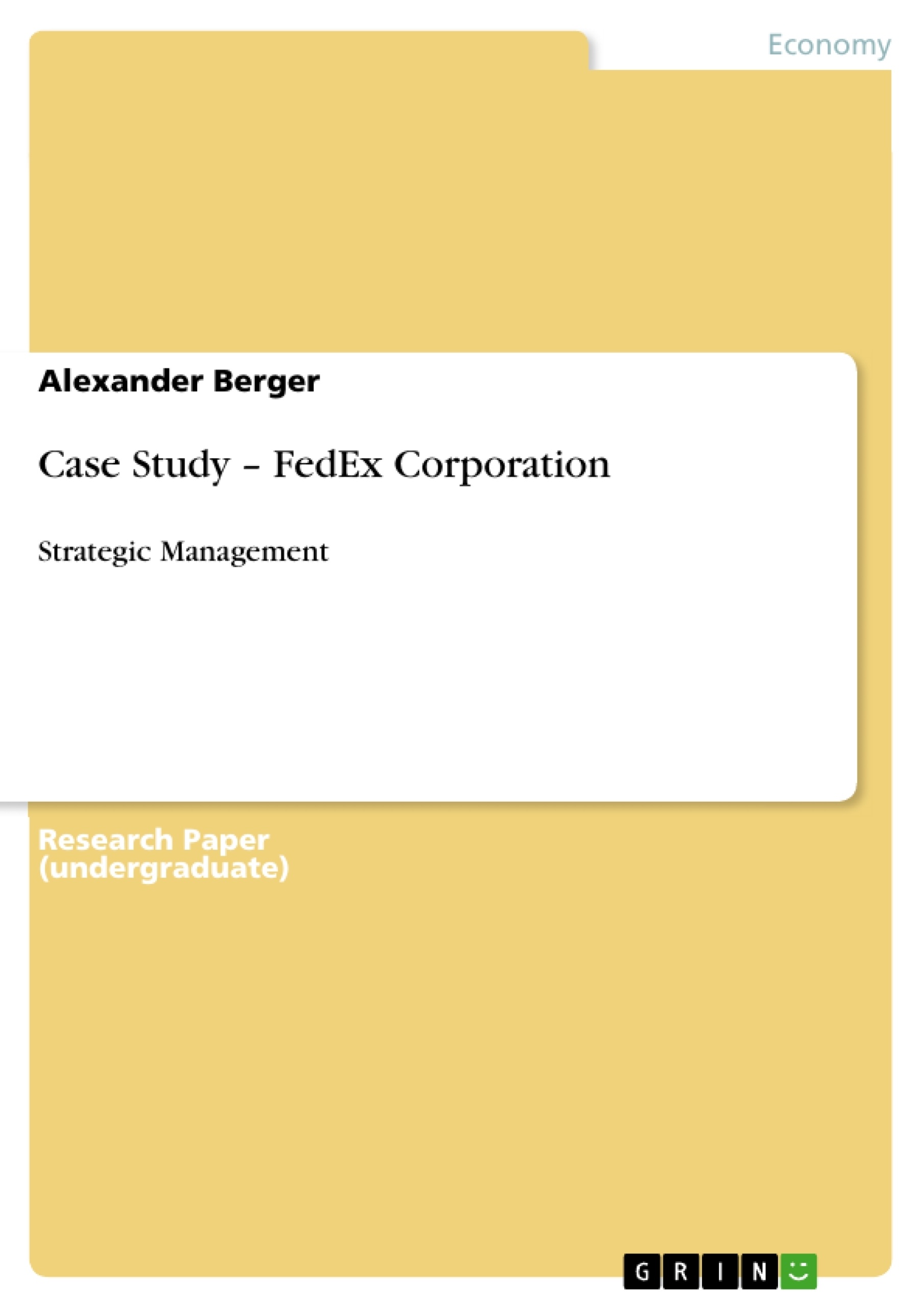The FedEx Corporation founded in 1971 in Memphis is a logistic company which provides transportation, e-commerce, and business services. The company is globally presence in 220 countries and has more than 260,000 employees. In 1973 FedEx introduced the next-day delivery revolutionising the distribution industry. Since the foundation FedEx made large investments in research and development as well as in its logistic infrastructure. As of January 2000, FedEx created a worldwide network consisting of 34,000 drop-off locations, 10 million square feet of warehouse space, 648 aircrafts, and 60,000 vehicles. In addition FedEx introduced several technological innovations which in turn has given the company an enormous competitive advantage. Nevertheless the environment changes constantly due to the increasing number of competitors, financial crisis or globalisation. Due to this strategic management becomes more and more important for FedEx.
This report presents a critical analysis and evaluation of the strategic development of the FedEx Corporation. This report is divided into three parts. In the first part the external environment of FedEx is presented within the scope of Porter’s five forces. Further Porter’s
Value Chain techniques will be outlined and their practical relevance to strategic planners at FedEx Corporation will be described. Then the core competencies and capabilities of FedEx between 1973 and 2000 will be identified. At the end of the first part the main advantages and
disadvantages of international trade to FedEx Corporation will be mentioned. In the second part Whittington’s ‘Classical’ and ‘Evolutionary’ Schools of Thought in the context of strategy development at FedEx from 1973 to 2000 will be presented. Last but not least in the third part the implications for strategic management of Stacey’s four loops including the rational, the overt politics, the covert politics, and the culture and cognition will be critically
evaluated.
- Quote paper
- Alexander Berger (Author), 2010, Case Study – FedEx Corporation, Munich, GRIN Verlag, https://www.grin.com/document/173672



